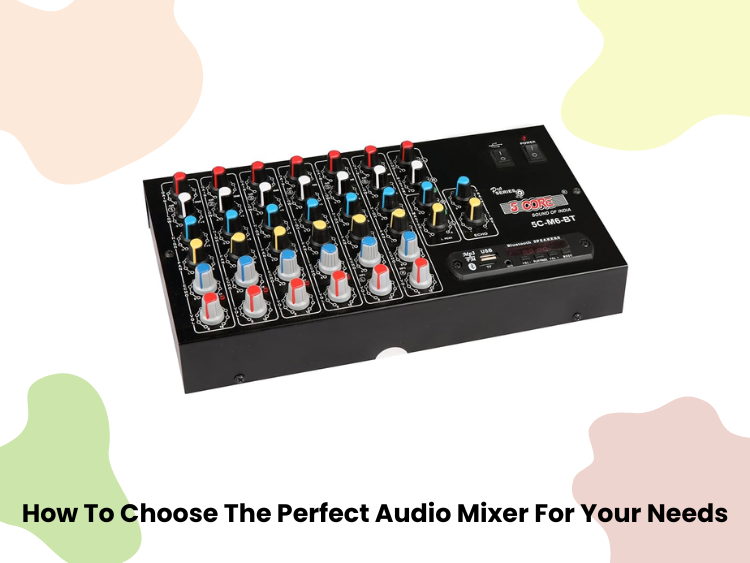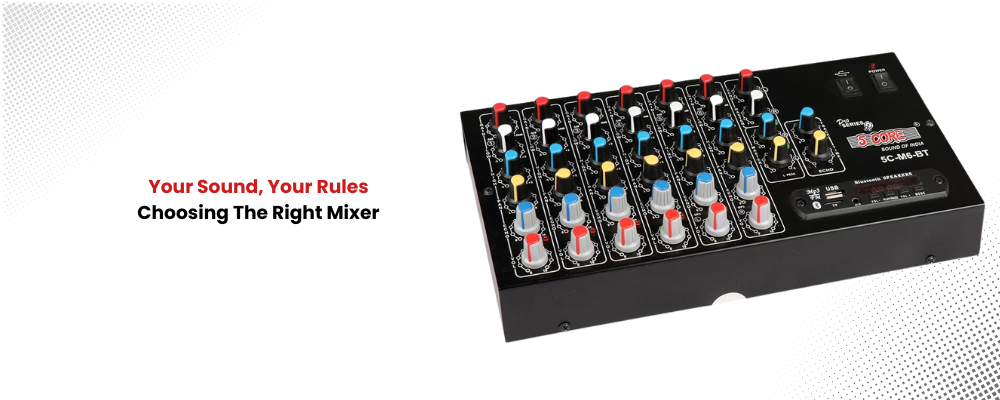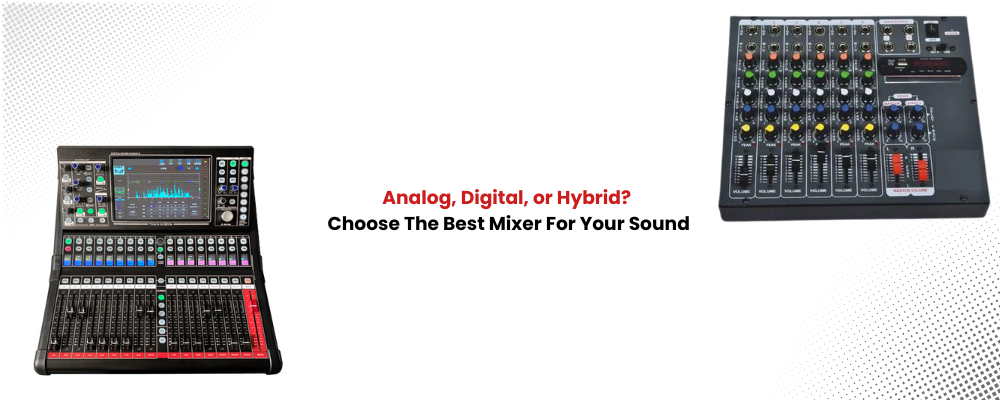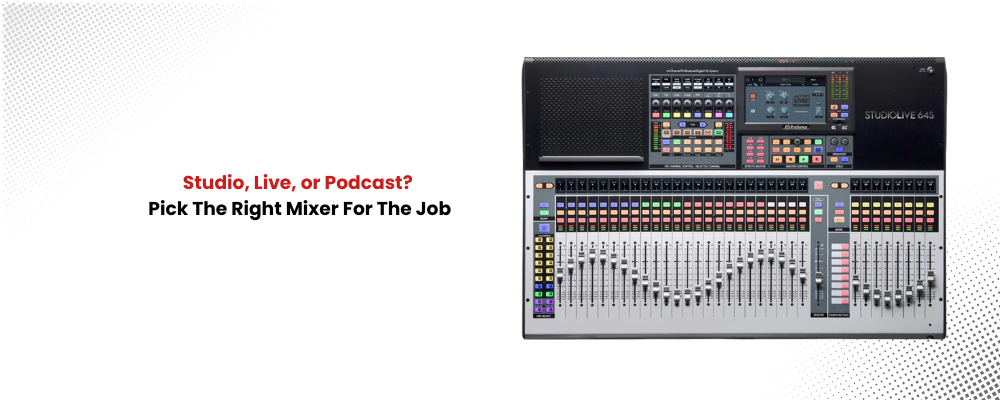An audio mixer is essential for any sound setup, whether setting up a live performance, recording in a studio, or running a podcast. There are a plethora of mixers on the market today, which may seem overwhelming. Identifying your requirements, different kinds of mixers, and major features will allow you to make an informed choice. This guide will teach you everything you need to know to choose the perfect audio mixer.
Understanding Your Needs
Before getting into the techniques, what is your purpose? The mixer suitable for a live band will not be the same as the one you might want for a home studio or podcasting setup. These are the important questions you need to ask yourself:
- What do you plan to use the mixer for?
Live sound, recording, streaming, or broadcasting? - How many inputs and how many outputs?
Microphones, instruments, and external devices. - Would you rather analog or digital?
Each has its pros and cons. - What’s your budget?
Mixers can be basic, cheap models or high-end pro gear.
Types of Audio Mixers
Audio mixers are indispensable devices in sound production, whether for live events, in the studio, or broadcasting. They vary by type according to their function and use.
- Analog Mixers: These oldest types of mixers often use knobs and sliders to control audio feed. They are also easy to use and favored for live sound mixing for this reason, as well as for reliability and ease of use.
- Digital Mixers: These mixers use Digital Signal Processing (DSP) to provide features such as preset recall effects and can be controlled remotely using software or mobile apps. These are commonly used in pro studios and big events.
- Powered Mixers: These come with internal amplifiers, so there is no need for external amps. They are perfect for little spaces and portable PA systems.
- Software Mixers: Virtual mixers in digital audio workstations (DAWs) allow for editing and mixing of sound on a computer.
Different varieties are available, catering to various requirements such as live acts and studio recordings.
Key Features to Consider
There are some key features you should look for when buying an audio mixer:
- Number of Channels: The number of microphones, instruments, or other audio sources that can be plugged in. Choose based on your setup.
- EQ (Equalization) Controls: Shapes sound quality by adjusting the bass, mid, and treble frequencies.
- Built-in Effects: Mixers can offer reverb, delay, and compression to improve audio without external processors.
- Analog vs Digital: Analog’s tactile control versus digital’s presets, automation, and remote access.
- Phantom Power: Required for condenser microphones.
- Connectivity: Seek USB, Bluetooth, or Wi-Fi capabilities to ensure smooth integration with computers and recording apps.
- Aux Sends & Returns: These are for effects outside VST plugs or custom monitoring mixes.
- Portability & Size: Smaller models are ideal for small gigs, whereas larger mixers will be suited for professional studios.
Selecting the correct mixer is reliant on your audio needs and workflow.
Choosing Based on Application
Selecting the right audio mixer depends on the specific use case. Here’s a guide based on different applications:
- Live Sound & Concerts: Analog or digital mixers with multiple channels, built-in effects, and sturdy construction are ideal. Digital mixers offer remote control and preset recall for large-scale events.
- Studio Recording: Digital mixers with high-quality preamps, multi-track recording, and USB or DAW integration provide professional sound control. Software mixers within DAWs are also popular.
- Podcasting & Streaming: Compact digital mixers with USB connectivity, built-in EQ, and noise reduction features ensure clear audio for voice recordings. Some include Bluetooth for easy input sources.
- DJ & Music Production: DJ mixers with crossfaders, EQ controls, and multiple input options allow seamless track blending and effects application.
- Small Events & PA Systems: Powered mixers with built-in amplifiers reduce equipment needs, making them great for churches, conferences, and public speaking.
Choosing the right mixer depends on the number of inputs, sound quality, and portability requirements.
Top Mixer Brands to Consider
When choosing an audio mixer, consider these top brands known for quality and reliability:
- Yamaha: Renowned for both analog and digital mixers, Yamaha offers user-friendly interfaces, high-quality preamps, and durable designs suitable for live and studio use.
- 5Core Audio Mixer: An emerging brand offering affordable and reliable audio mixers with essential features, making them a great choice for small events, home studios, and budget-conscious users.
- Behringer: Known for budget-friendly yet feature-packed mixers, Behringer provides a range of analog and digital models for beginners and professionals alike.
- Allen & Heath: A premium brand offering high-end mixers with excellent sound quality, intuitive controls, and robust build quality, ideal for live performances and studios.
- Soundcraft: Favored for live sound mixing, Soundcraft mixers feature great preamps, built-in effects, and reliable connectivity options.
Each brand caters to different needs, from beginners to professional audio engineers.
Final Thoughts
Choosing the right audio mixer depends on your specific needs, budget, and experience level. Whether you’re managing a live performance, setting up a home studio, or recording a podcast, understanding the different types of mixers and their features will help you make an informed decision. Take the time to assess your requirements, explore various brands, and invest in a mixer that enhances your workflow and sound quality.




